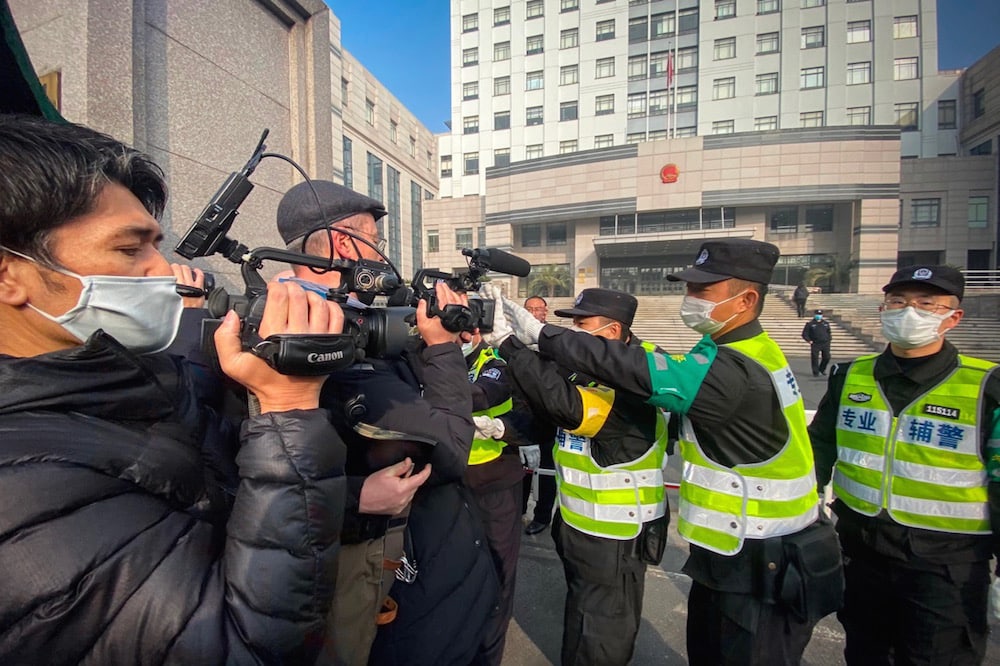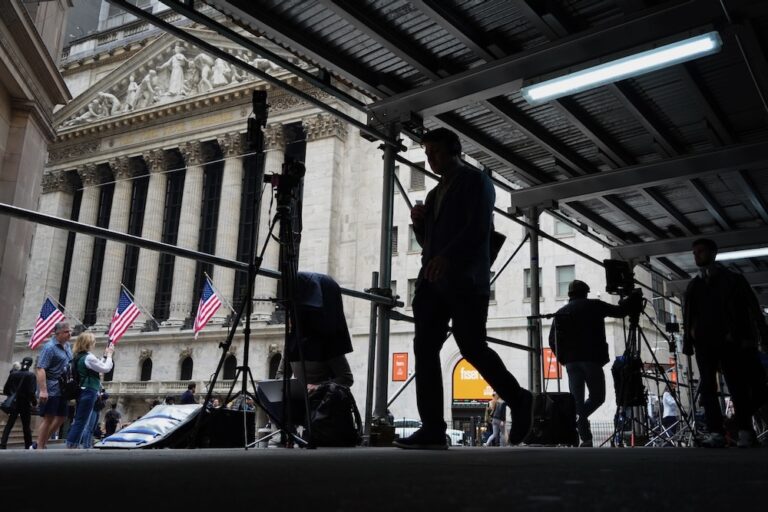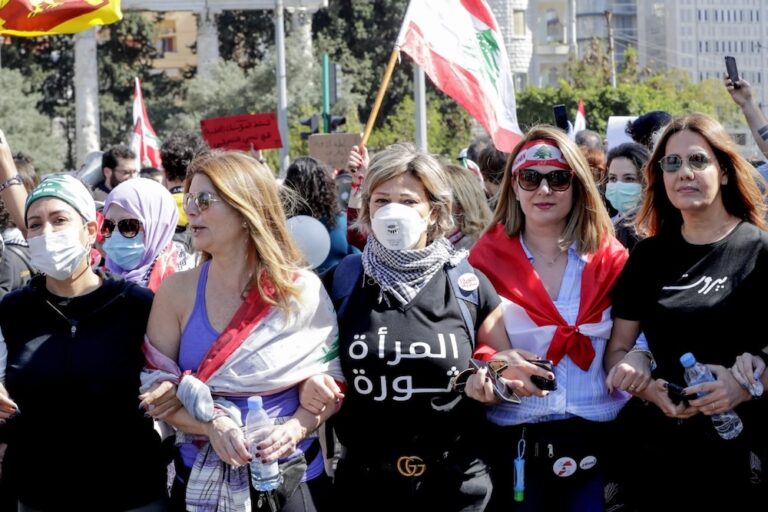Of 180 countries evaluated by the 2021 World Press Freedom Index, 73 totally block or seriously impede journalism; in 59 others journalism is "constrained". The Index also shows a dramatic deterioration in people's access to information and an increase in obstacles to news coverage.
This statement was originally published on rsf.org on 20 April 2021.
The 2021 World Press Freedom Index compiled by Reporters Without Borders (RSF) shows that journalism, the main vaccine against disinformation, is completely or partly blocked in 73% of the 180 countries ranked by the organisation.
This year’s Index, which evaluates the press freedom situation in 180 countries and territories annually, shows that journalism, which is arguably the best vaccine against the virus of disinformation, is totally blocked or seriously impeded in 73 countries and constrained in 59 others, which together represent 73% of the countries evaluated. These countries are classified as having “very bad,” “bad” or “problematic” environments for press freedom, and are identified accordingly in black, red or orange on the World Press Freedom map.
The Index data reflect a dramatic deterioration in people’s access to information and an increase in obstacles to news coverage. The coronavirus pandemic has been used as grounds to block journalists’ access to information sources and reporting in the field. Will this access be restored when the pandemic is over? The data shows that journalists are finding it increasingly hard to investigate and report sensitive stories, especially in Asia, the Middle East and Europe.
The 2021 Edelman Trust barometer reveals a disturbing level of public mistrust of journalists, with 59% of respondents in 28 countries saying that journalists deliberately try to mislead the public by reporting information they know to be false. In reality, journalistic pluralism and rigorous reporting serve to combat disinformation and “infodemics”, including false and misleading information.
“Journalism is the best vaccine against disinformation,” RSF secretary-general Christophe Deloire said. “Unfortunately, its production and distribution are too often blocked by political, economic, technological and, sometimes, even cultural factors. In response to the virality of disinformation across borders, on digital platforms and via social media, journalism provides the most effective means of ensuring that public debate is based on a diverse range of established facts.”
For example, President Jair Bolsonaro of Brazil (down 4 at 111th) and President Nicolás Maduro of Venezuela (down 1 at 148th) promoted medically unproven Covid-19 remedies. Their false claims were debunked by investigative journalists at media outlets such as Brazil’s Agência Pública and in-depth reporting by Venezuela’s few remaining independent publications. In Iran (down 1 at 174th), the authorities tightened their control over news coverage and stepped up trials of journalists in order to weaken the media’s ability to scrutinise the country’s Covid-19 death toll. In Egypt (166th), President Abdel Fattah Al-Sisi’s government simply banned the publication of any pandemic statistics that didn’t come from the Ministry of Health. In Zimbabwe (down 4 at 130th), the investigative reporter Hopewell Chin’ono was arrested shortly after helping to expose the overbilling practices of a medical equipment supply company.
Biggest movements in the Index
Norway is ranked first in the Index for the fifth year running even though its media have complained of a lack of access to state-held information about the pandemic. Finland maintained its position in second place while Sweden (up 1 at 3rd) recovered its third place ranking, which it had yielded to Denmark (down 1 at 4th) last year. The 2021 Index demonstrates the success of these Nordic nations’ approach towards upholding press freedom.
The World Press Freedom map has not had so few countries coloured white – indicating a country situation that is at least good if not optimal – since 2013, when the current evaluation method was adopted. This year, only 12 of the Index’s 180 countries (7%) can claim to offer a favourable environment for journalism, as opposed to 13 countries (8%) last year. The country to have been stripped of its “good” classification is Germany (down 2 at 13th). Dozens of its journalists were attacked by supporters of extremist and conspiracy theory believers during protests against pandemic restrictions.
The press freedom situation in Germany is nonetheless still classified as “fairly good,” as is the case in the United States (down 1 at 44th), despite the fact that Donald Trump’s final year in the White House was marked by a record number of assaults against journalists (around 400) and arrests of members of the media (130), according to the US Press Freedom Tracker, of which RSF is a partner. As a result of falling four places, Brazil joined the countries coloured red, indicating that the press freedom situation there is classified as “bad”. The vilification and orchestrated public humiliation of journalists have become trademarks of President Bolsonaro, along with his family and closest allies. Brazil shares the “bad” classification with India (142nd), Mexico (143rd) and Russia (down 1 at 150th), which deployed its repressive apparatus to limit media coverage of protests in support of Kremlin opponent, Alexei Navalny.
China (177th), which continues to take Internet censorship, surveillance and propaganda to unprecedented levels, is still firmly anchored among the Index’s worst countries, which are indicated in black on the World Press Freedom map. Right below China is the same trio of totalitarian countries that have historically occupied the bottom three places. Two are Asian: Turkmenistan (up 1 at 178th) and North Korea (up 1 at 179th). The third is African: Eritrea (down 2 at 180th). Regardless of their continent, these countries maintain absolute control over all news and information, enabling the first two to claim they had no Covid-19 cases and the third to maintain complete silence about the fate of 11 journalists who were arrested 20 years ago, some of whom have allegedly been held in metal containers in the middle of a desert.
The country that fell the furthest in 2021 was Malaysia (down 18 at 119th), where the problems include a recent “anti-fake news” decree allowing the government to impose its own version of the truth. Big descents were also registered by Comoros (down 9 at 84th) and El Salvador (down 8 at 82nd), where journalists have struggled to obtain state-held information about the government’s handling of the pandemic. Most of the 2021 Index’s biggest gains are in Africa. Burundi (up 13 at 147th), Sierra Leone (up 10 at 75th) and Mali (up 9 at 99th) have all seen significant improvements, including the release of four journalists with the independent Burundian media Iwacu, the repeal of a law criminalising press offences in Sierra Leone and a fall in the number of abuses in Mali.
Index region by region
Europe and the Americas (North, Central and South) continue to be the most favourable continents for press freedom, even though the Americas registered the biggest deterioration in its regional violations score (up 2.5%). Europe registered a sizeable deterioration in its “Abuses” indicator, with acts of violence more than doubling in the European Union and Balkans, compared with a 17% deterioration worldwide. Attacks against journalists and arbitrary arrests increased in Germany (13th), France (34th), Italy (41st), Poland (down 2 at 64th), Greece (down 5 at 70th), Serbia (93rd) and Bulgaria (down 1 at 112th).
Although there was less deterioration in Africa’s “Abuses” score, it continues to be the most violent continent for journalists, and the Covid-19 pandemic fuelled the use of force to prevent journalists from working. In Tanzania (124th), President John Magufuli called the virus a “western conspiracy,” suggesting that Tanzania had kept it at bay “by force of prayer.” He imposed an information blackout on the pandemic before his death in March 2021.
In the Asia-Pacific region, the “censorship virus” spread beyond China, in particular to Hong Kong (80th), where the National security law imposed by Beijing seriously threatens journalists. Australia (up 1 at 25th), experienced a disturbing variant: in response to proposed Australian legislation requiring tech companies to reimburse the media for content posted on their social media platforms, Facebook decided to ban Australian media from publishing or sharing journalistic content on their Facebook pages.
The Eastern Europe and Central Asia (EECA) region held onto its second-to-last position in the regional rankings, in part because of events in Belarus (down 5 at 158th), where journalists were subjected to an unprecedented crackdown in an attempt to cover up the massive street protests in response to the contested presidential election result.
There has been no significant change in the Middle East & North Africa (MENA) region, which maintained last place in the regional rankings. In Algeria (146th) and Morocco (down 3 at 136th), the judicial system is being used to help silence journalists, while the Middle East’s most authoritarian countries – Saudi Arabia (170th), Egypt (166th) and Syria (up 1 at 173rd) – have taken advantage of the Covid-19 pandemic to reinforce their methods for gagging the media and to reaffirm their monopoly on news and information. In this region, still the toughest and most dangerous for journalists, the pandemic has exacerbated the problems that have long plagued the press, which was already in its death throes.
RSF’s global indicator – its measure of the level of media freedom worldwide – is only 0.3% lower in the 2021 Index than it was in 2020. However, the past year’s relative stability should not divert attention from the fact that it has deteriorated by 12% since this indicator was created in 2013.



